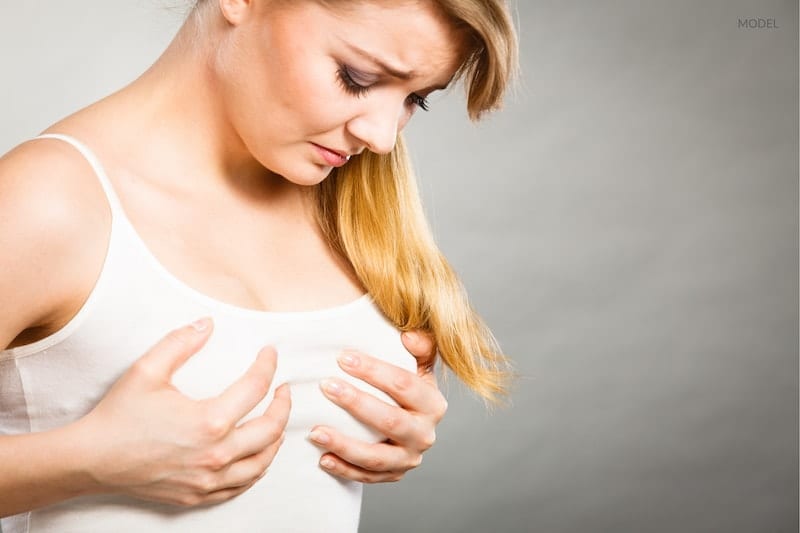2 Minute Read:
Thousands of women undergo a breast augmentation surgery every year. For most, their recovery goes well, and they are satisfied with their new bust appearance. Unfortunately, complications sometimes develop after the operation.

One of the more common complications is capsular contracture. Based on a scientific literature review published in the US national library of medicine, the capsular contracture rate ranges between 15 and 45 percent, with a slightly increased risk associated with silicone implants.
What Is Capsular Contracture?
Capsular contracture is a medical condition that occurs when scar tissue thickens and contracts around a breast implant. This may cause cosmetic deformation or pain in more severe cases. There are four stages of capsular contracture severity, with stages one and two rarely requiring significant correction. Stage three may require ultrasound therapy or breast revision surgery to correct, while stage four almost always requires implant extraction.
How Does Capsular Contracture Occur?
Following a breast augmentation surgery, a capsule of scar tissue naturally forms around the implant. In most cases, the capsule is helpful, holding the implant in place while the scar tissue remains pliable. Unfortunately, in some cases, this capsule thickens and contracts, creating problems for the patient.
While the exact causes have yet to be proven, current theories suggest that capsular contracture can be caused by genetic factors or low-level bacterial contamination on the implant itself. Further research is required to validate these hypotheses and conclusively determine the causes of the condition. Other medical conditions, such as blood clots, have also been statistically linked to capsular contracture, but what that specific link is unknown.
What Treatments Are Available to Treat Capsular Contracture?
In most moderate to severe cases, a breast implant removal followed by a breast revision surgery will be needed to correct the issue entirely. Following these procedures, patients may choose to have new implants placed.
Patients should be aware that a previous case of capsular contracture may increase their risk of developing another case. It is still unknown why this is the case, but current theories suggest that bacterial contamination may remain following the removal of an implant for some time. More research is needed to determine if this is the case.
For patients who have experienced capsular contracture, tissue reinforcement with MesoMatrix® can be helpful to prevent additional capsular contracture from occurring. MesoMatrix® is a biodegradable mesh that reinforces breast tissue by strengthening collagen production long after it has been absorbed. This mesh is beneficial for women with thinner breast tissue to avoid implant complications.
Are You Concerned About Capsular Contracture?
If you feel your breasts are becoming overly firm, hard, deformed, or painful following your breast augmentation, you should contact Dr. Hochstein immediately at (305) 931-3338 or fill our online form to schedule an appointment.